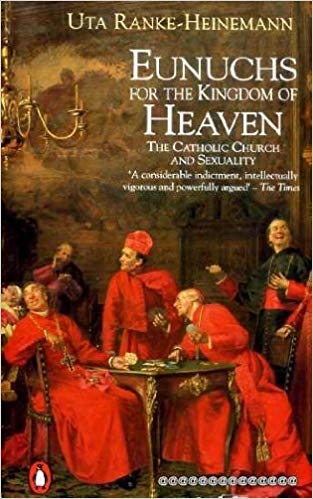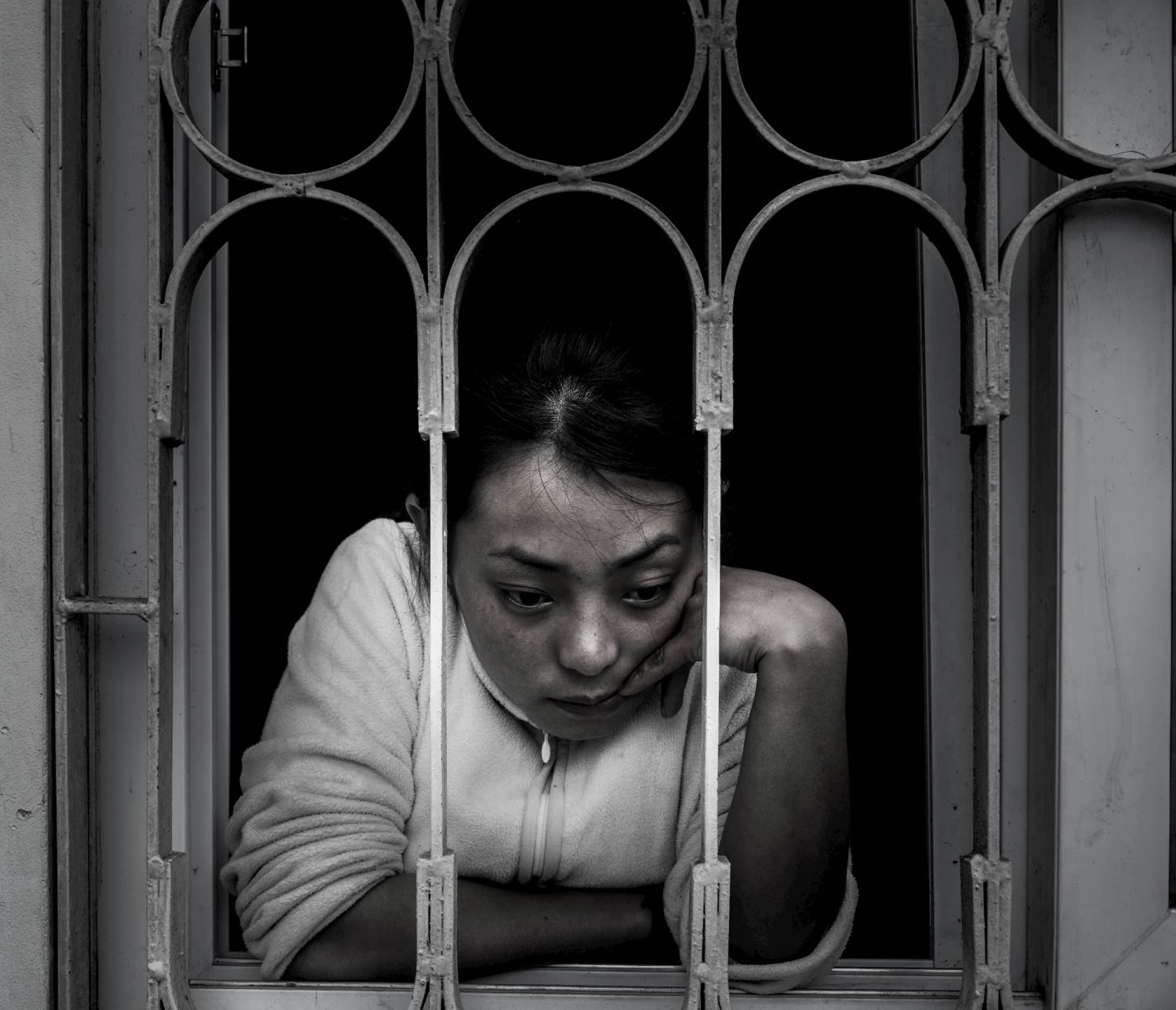Warning: Contains explicit language. In this sermon, we explore what we believe about sex and where these ideas might have come from.
Do you have any of these ideas about sex?
- Self sterilization is sinful
- Contraception is sinful
- Masturbation is sinful
- Having sex while pregnant is sinful
- Vaginal sex is the only sex that is holy
- Oral, anal, and other sexual acts are sinful
- Discussing sex makes you uncomfortable
- You consider sexual intercourse to be nasty
- The missionary sex position is the only righteous position
If so, you may be affected by sexual repression.
What is sexual repression?
Repression means: restrained, inhibited, or oppressed. Sexual repression is a state whereby a person is unable to express their natural sexuality (a manner of being sexual or engaging in sexual activity) for a variety of reasons, one of those reasons is because of the influence of religious beliefs.
Sexual repression and Catholicism
Even if you never grew up Catholic, because of their influence across the world, their ideas may affect your life without you knowing it. Catholic leaders got their ideas about sex by misinterpreting the Bible and simply being led by the enemy to suppress sex.

In an article criticizing the Catholic Church’s beliefs about sex: The author posts excerpts from the best seller book “Eunuchs for the Kingdom of Heaven: Women, Sexuality and the Catholic Church” written by Uta Ranke-Heinemann a woman who holds a PhD in Catholic theology.
Here’s some excerpts from the article:
Only after 1139 CE were priests no longer allowed to marry.
Early Church Fathers came to increasingly believe that celibacy and virginity were the ultimate stance one should adopt in the eyes of God. People such as Justin Martyr, Clement of Alexandria, Origen, Jerome, Augustine and Thomas Aquinas. Thus Christianity developed a hostility towards sex and a hatred of the pleasure derived from it.
The likes of Augustine Hippo connected the transmission of original sin with sexual intercourse, or more precisely, sexual pleasure.
But even these idiots realised that someone had to have sex or else humans would quickly die out. Sex was seen as a necessary evil. So marriage was allowed, although not encouraged, since it was still better to live life as a virgin than worry about the human race.
In fact they even calculated how much one would benefit on reaching heaven. Virgins would receive 100% heavenly reward, widows and widowers (because they had stopped having sex) would get 60%, and married people only 30%.
So marriage and sex was begrudgingly permitted, but it was not under any circumstances to be enjoyed. Thomas Aquinas said that, ‘Marriage is aimed at procreation, and therefore the man who loves his wife too passionately contravenes the good of marriage and can be labelled an adulterer’.
Jerome stated that, ‘The begetting of children is allowed in marriage, but the feelings of sensual pleasure such as those had in the embraces of a harlot are damnable in a wife‘.
The likes of Augustine, Thomas Aquinas and Albert the Great considered sexual pleasure as ‘evil, a punishment, filthy, defiling, ugly, shameful, sick, a degradation of the mind, a humiliation of reason by the flesh, common, debasing, humiliating, shared with the beasts, brutal, corrupted, depraved, infected and infecting‘. And even worse, these descriptions are also transferred to women since they are the filthy things that men are coerced into having sex with.
While the church leaders hated sex, and everything surrounding it, and still do, they weren’t content to just live a celibate and virginal life themselves, they felt they had to force their twisted beliefs onto the rest of the world.
Everyone from peasant to King had to be told that, ‘Sexual intercourse is reprehensible and evil’ and that, ‘There can be no sexual pleasure without sin‘. This of course required that popes, priests, bishops, deacons, monks etc must all take an obscene and detailed interest in the intimate sex life of every Christian on the planet.
Enjoying sex is forbidden. So is sex outside marriage. Sex with pregnant or menstruating women is forbidden, since if the woman is already pregnant or can’t get pregnant then the purpose isn’t procreation.
Older people are forbidden from having sex, as are people that are sterile. Any sex act where conception isn’t possible, such as oral sex, is deemed unnatural and forbidden.
For the same reason, contraception is strictly forbidden. Any attempt to ‘thwart the beginning of life’ is a sin against God. An ancient form of contraception called coitus interruptus or the ‘Withdrawal Method‘, withdrawing and ejaculating outside the vagina, should also be a big no no, as should the ‘rhythm method‘ where women have sex at a point in their menstrual cycle when they are unlikely to get pregnant, and yet for reasons that defy logic, both methods are promoted by the Catholic Church as ways of preventing pregnancy.
Why is controlling pregnancy by how or when you have sex not deemed contraception? The motivation for both is to have sex while preventing pregnancy, and consequently, an attempt to ‘thwart the beginning of life’. Bloody hypocrites.
Even making yourself sterile is a sin according to the Catholic Church. Doing anything that prevents you from obeying God’s commandment to go forth and multiply brings down his wrath and condemns you to damnation in Hell. Which makes you wonder why celibacy isn’t a horrible sin as well? Isn’t celibacy the most reliable form of contraception we have?
Masturbation of course was one of the more serious and really nasty sins. To show how disgusting their thinking was, they considered masturbation a worse sin than having sex with one’s own mother. Why, well at least sex with your mother could result in a baby, masturbation can’t.
In the 19th century, to protect women from this sin, a solution the church supported was clitoridectomy. This is what is now commonly called female circumcision, or more correctly, female genital mutilation.
[I’d like to add that male circumcision was done for the very same reason. Learn more. — Neal]
Missionary only. Any other position was deemed unnatural and a sin. And strange as it may seem, according to the church, the many different sex acts and positions that modern people take for granted were largely unknown to many of the peasants.
The church discovered rather embarrassingly that in their attempt to quiz their parishioners as to whether they were doing anything other than ‘natural acts’ in the ‘missionary position’, they had to describe activities that the peasants hadn’t considered, but many were interested in trying after leaving the confessional box. Of course it makes you wonder how celibate priests became so knowledgeable about sex?
Actually many of the early church fathers that argued for celibacy and came to hate women were no strangers to sex. Augustine for example lived with a woman for 12 years before kicking her out, but keeping their son. Unable to wait for his new wife in a planned marriage, he then took another lover. He also evidently dabbled with homosexuality in his teenage years.
However, after marriage for clergy was banned, and the leaders of the church became fanatical in their hostility to sex and women, the mind boggles as to how these celibates continually thought about sex in order to condemn it, yet without deriving any pleasure from their thoughts.
For normal people, thoughts of sexual acts are erotic and pleasurable. These priests must have so corrupted their thinking that for them visualizing sex with an attractive woman must have been like visualizing cleaning up vomit is for me.
Silly Beliefs – Sex, women and the Catholic Church, The evil plan of popes, priests and nuns

Augustine of Hippo
Augustine of Hippo (13 November 354 – 28 August 430 AD) was a Roman African, early Christian theologian and Neoplatonic philosopher from Numidia whose writings influenced the development of the Western Church and Western philosophy, and indirectly all of Western Christianity.
He was the bishop of Hippo Regius in North Africa and is viewed as one of the most important Church Fathers of the Latin Church for his writings in the Patristic Period. Among his most important works are The City of God, De doctrina Christiana, and Confessions.
Augustine on Sexuality
For Augustine, the evil of sexual immorality was not in the sexual act itself, but rather in the emotions that typically accompany it. In On Christian Doctrine Augustine contrasts love, which is enjoyment on account of God, and lust, which is not on account of God.
Augustine claims that, following the Fall, sexual passion has become necessary for copulation (as required to stimulate male erection), sexual passion is an evil result of the Fall, and therefore, evil must inevitably accompany sexual intercourse (On marriage and concupiscence 1.19). Therefore, following the Fall, even marital sex carried out merely to procreate the species inevitably perpetuates evil (On marriage and concupiscence 1.27; A Treatise against Two Letters of the Pelagians 2.27).
For Augustine, proper love exercises a denial of selfish pleasure and the subjugation of corporeal desire to God. The only way to avoid evil caused by sexual intercourse is to take the “better” way (Confessions8.2) and abstain from marriage (On marriage and concupiscence 1.31). Sex within marriage is not, however, for Augustine a sin, although necessarily producing the evil of sexual passion. Based on the same logic, Augustine also declared the pious virgins raped during the sack of Rome to be innocent because they did not intend to sin nor enjoy the act.
Before the Fall, Augustine believed that sex was a passionless affair, “just like many a laborious work accomplished by the compliant operation of our other limbs, without any lascivious heat”; the penis would have been engorged for sexual intercourse “simply by the direction of the will, not excited by the ardour of concupiscence” (On marriage and concupiscence 2.29; cf. City of God 14.23).
After the Fall, by contrast, the penis cannot be controlled by mere will, subject instead to both unwanted impotence and involuntary erections: “Sometimes the urge arises unwanted; sometimes, on the other hand, it forsakes the eager lover, and desire grows cold in the body while burning in the mind… It arouses the mind, but it does not follow through what it has begun and arouse the body also” (City of God 14.16).
Augustine of Hippo, Wikipedia
What we have here are the thoughts of men and evil spirits bent on destroying the gift of sex from humanity. In research of this topic, I watched several documentaries on the history of sex and I found that the Catholic Church’s strict response to sex came out of an era of extreme promiscuous where Rome was into everything from homosexuality, public orgies, bestiality, and pedophilia (which they still practice today). So in attempt to repent from their sexual sins, they imposed strict regulations on sex that sexually repressed many people and the effects continue to this day.



